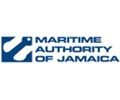

The Government of Jamaica has demonstrated its commitment to reduce and eliminate marine plastics from our oceans through its selection as one of ten Lead Partnering Countries globally in an International Maritime Organization (IMO) and Food and Agriculture Organization (FAO) supported global project.
The project, entitled: Building Partnerships to Assist Developing Countries to Address the Issue of Marine Plastic Litter from Sea-based Sources – more commonly referred to as the GloLitter Partnerships Project – aims to build capacity in nations to enable them to tackle ocean pollution.
Studies have estimated that between 4.8 million to12.7 million tons of land-based plastic waste from coastal countries ends up in oceans every year, impacting on marine species, human health and maritime industries such as tourism and fisheries.
The GloLitter Partnership Project was officially launched in Jamaica in July this year with the establishment of a multi-agency National Task Force and a meeting with members of the Project Coordinating Unit from the IMO and the FAO. The National Task Force comprises representatives from the Ministry of Transport and Mining and other Government ministries and agencies with responsibility for fisheries, maritime transport, women’s affairs and the protection of the marine environment, and will act as a steering group providing oversight for the project’s implementation.
The project will enable capacity building and the creation of tool kits for the development of national policies and strategies and the engagement of a local consultant to support legal, policy and institutional reforms for the prevention and reduction of marine plastic litter and in particular plastic marine litter generated from the maritime transport and fisheries sectors.
It will address issues such as the retrieval of lost and discarded fishing gear from the oceans, and establish fishing port facilities and initiatives for the recycling and reuse of marine plastic litter.
Commenting on the Project, Rear Admiral (Ret’d) Peter Brady, Director General of the Maritime Authority of Jamaica, said: “As a Small Island Developing State (SIDs) with an open economy and heavy dependence on the blue economy for trade, tourism and fishing, Jamaica is well placed to benefit from the project and as a Lead Partner Country we will have the responsibility to share our experience and best practice gained from the project, with the rest of the Caribbean and other SIDS”.
The three-year project, which extends to 2024, is initially funded by the Government of Norway and the Maritime Authority of Jamaica with support from the National Fisheries Authority which will take the role of the lead agency responsible for its implementation in Jamaica.
The MAJ is Jamaica’s maritime administration, with responsibility for the development of shipping and the protection and safety of the marine environment.
Source: Maritime Authority of Jamaica